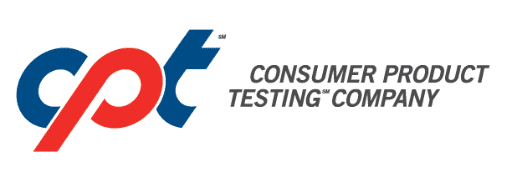Bisphenol A Testing
What is Bisphenol A and what is it used for?
Bisphenol A (commonly abbreviated as BPA) is an organic compound that has been used in food contact materials since it was first approved by US FDA in the 1960’s. It has been primarily used to harden certain plastics and is a basic building block of polycarbonate plastic. This type of plastic is used to make a wide variety of products such as but not limited to food, beverage and drug product containers, compact disks, plastic dinnerware, auto parts and children’s toys. BPA epoxy resins are used in the protective linings of food cans and in the linings of metal tubes used for drug and personal care products, in dental sealants and in many other products. Due to its commercial importance, between 2 – 3 million metric tons of BPA are produced worldwide each year.
Does BPA pose any health risks to humans?
BPA has been shown to be an “endocrine disruptor” which means that high-level exposures can interfere with endocrine (hormonal) systems within the human body. These disruptions could cause cancerous tumors, birth defects and other developmental disorders. That being said, the human health effects from low-level exposures to BPA are not known. In recent years, concerns have been raised over BPA’s safety. In their Fourth National Report on Human Exposure to Environmental Chemicals (2003), CDC scientists tested for BPA in the urine of over 2,500 participants aged six years and older and found measurable levels of BPA in nearly all persons tested. This indicates widespread exposure to BPA in the US population. Prompted by the continuing concerns of consumers, in 2008 FDA conducted a review of the body of scientific information available at that time which related to the safety of BPA. This review concluded that no information was found that would lead the FDA to make any changes to the approved status of BPA for use in food packaging and contact materials.
BPA as a contaminant in food, beverage, drug and personal care products.
Due to its widespread usage as a packaging material, it should come as no surprise that BPA has been found in numerous food, beverage, drug and personal care products at part per million (ppm) levels and even higher. This indicates that products of various types are extracting BPA from the packaging in which they are contained. For this reason, many product owners now screen their plastic container/closure systems for the presence of BPA so as to avoid this concern. Additionally, savvy product owners are now including BPA screening in the stability testing of their food, beverage, drug, and personal care products since in addition to plastic container systems, BPA has also been observed to migrate out of the varnishes and glues of product labels and into products.
How is BPA testing conducted?
Testing for BPA in foods, beverages, drugs, plastic containers, children’s toys and other sample matrices is conducted using Gas Chromatography with Mass Spectrometric detection (GC/MS). Since “%” levels of BPA may be found in some plastics, whilst “ppm” levels are most often found in products, the testing method(s) selected must be versatile and also exhibit a high degree of sensitivity. Also important to keep in mind, BPA must be taken into consideration when compiling the Extractables and Leachables profile of your Prescription drug product(s) as FDA now requires. Savvy manufacturers of OTC drug products are already screening their plastic container systems and products for BPA since BPA is generally considered undesirable by consumers.
How Can CPT℠ Assist?
CPT℠ is a recognized expert in conducting low-level testing for BPA and many other contaminants in products, packaging systems and other sample matrices. This is evidenced by the fact that CPT℠ is ISO/IEC 17025 Accredited for conducting Gas Chromatographic assays for potency, impurities, and low-level contaminants /residues. CPT℠’s state-of-the-art GC/MS instrumentation and team of seasoned professionals stand ready to assist you in your strategic planning and BPA testing needs.


